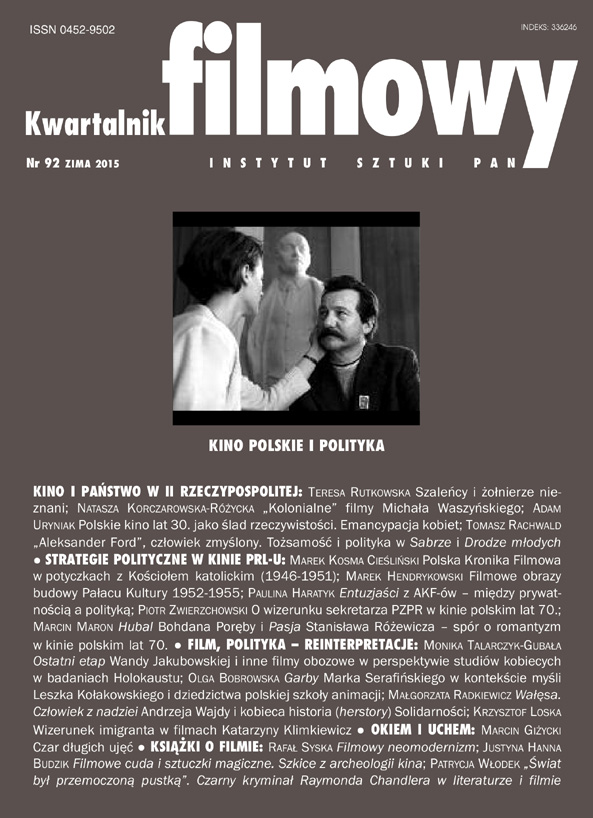Więźniarki i polityka. "Ostatni etap" Wandy Jakubowskiej i inne filmy obozowe w perspektywie studiów kobiecych w badaniach Holokaustu
Women Prisoners and Politics. Wanda Jakubowska’s „The Last Stage and Other Labor Camp Films in the Perspective of Gender Studies on the Holocaust
Author(s): Monika TalarczykSubject(s): Fine Arts / Performing Arts
Published by: Instytut Sztuki Polskiej Akademii Nauk
Keywords: Wanda Jakubowska; Andrzej Munk; Stanisław Różewicz; Holocaust
Summary/Abstract: The article places „The Last Stage” in the midst of these film testimonies and representations of which revisionist reinterpretation produces interesting outcomes in the area of gender studies. The author analyses two films for which Jakubowska’s work served as an iconographic model: Stanisław Różewicz’s „Three Women” (1956) and Andrzej Munk’s „The Passenger” (1963). Talarczyk-Gubała considers the „Three women” to be a polemic with Jakubowska’s film and her views on the indestructible bond between former prisoners. The author points to the left wing views shared by the directors, grounded in Polish socialist tradition and the ambivalence inscribed in the image of the SS overseer in the creation of Aleksandra Śląska. The analysis of the intertextual relationship between the first feature film about concentration camps and the films that refer to it indicates that both in the beginning and towards the end of the Polish film school, Jakubowska’s work was a non-negotiable starting point for Polish films on labour camps.
Journal: Kwartalnik Filmowy
- Issue Year: 2015
- Issue No: 92
- Page Range: 142-158
- Page Count: 17
- Language: Polish

